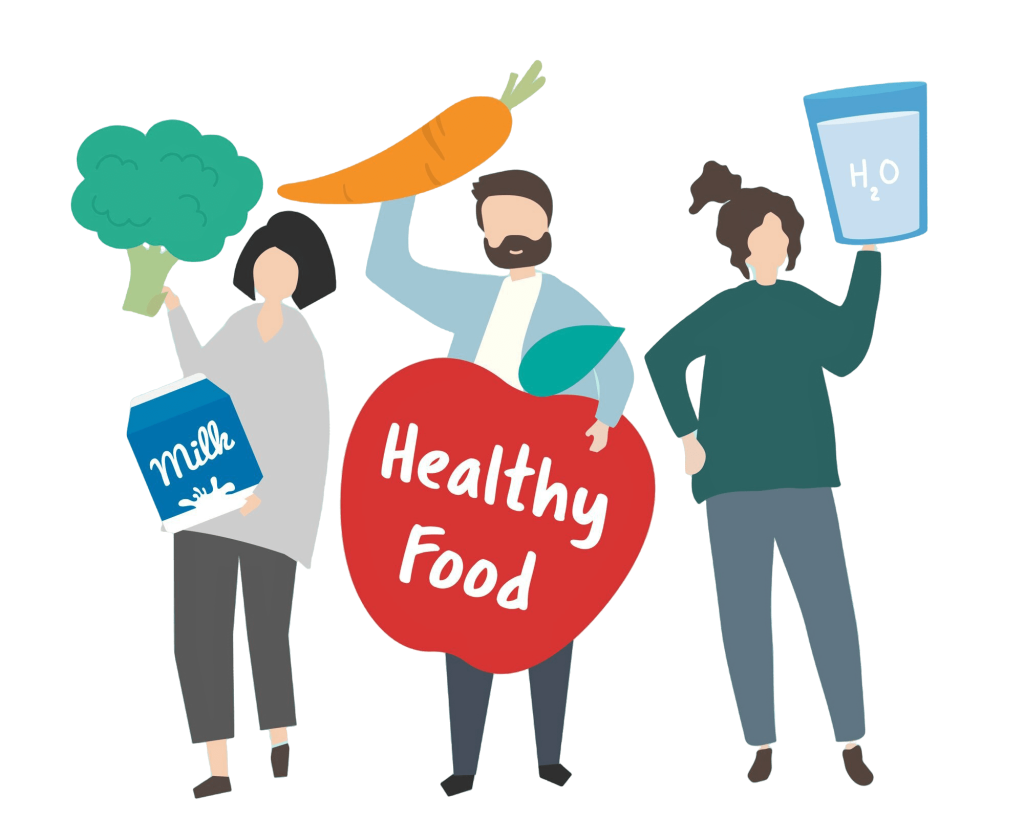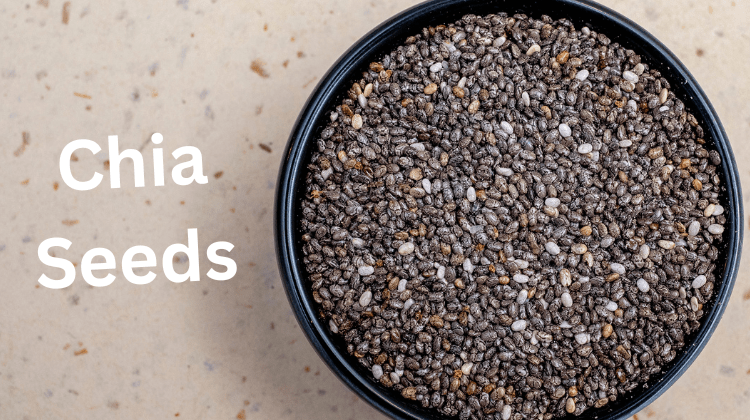Superfoods have become a buzzword in the health and wellness world, and among the most popular ones are chia seeds and flax seeds. Despite their tiny size, both are packed with impressive amounts of fiber, protein, healthy fats, and antioxidants, making them staples in many health-conscious diets.
But here’s the question many people ask: Which one is healthier—chia seeds or flax seeds? While both deliver excellent nutrition, they offer slightly different benefits. Chia seeds are known for their high calcium and hydration-supporting properties, while flax seeds stand out for their lignans and hormone-balancing potential.
In this article, we’ll break down the nutrition, health benefits, side effects, and practical uses of both chia and flax seeds. By the end, you’ll have a clear idea of which seed is better suited for your individual health goals—and why the best choice might actually be a balance of both.
Chia Seeds at a Glance
Chia seeds may be tiny, but they have a long history of being valued as a source of strength and nutrition. Originally cultivated by the Aztecs and Mayans in Central America, chia was considered an energy-boosting food—so much so that the word “chia” itself comes from the Mayan word for strength. In recent years, chia seeds have regained global popularity as a superfood due to their impressive nutrient profile and versatility in modern diets.
Key Nutrients in Chia Seeds
Chia seeds are one of the richest plant-based sources of omega-3 fatty acids (ALA), making them an excellent option for those who don’t consume fish. Just a small serving provides a powerful dose of:
- Fiber – promotes digestion, satiety, and healthy blood sugar levels
- Protein – supports muscle repair and overall energy
- Calcium – essential for bone strength, making chia an excellent choice for people avoiding dairy
- Antioxidants – help protect the body against free radical damage
Common Uses of Chia Seeds
One of the best things about chia seeds is their versatility. When soaked in liquid, they form a gel-like consistency, which makes them a favorite for:
- Chia pudding – a healthy, dairy-free dessert or breakfast option
- Smoothies – blended in for a nutrient boost
- Hydration drinks – often added to water or juices as they absorb fluid and help with electrolyte balance
Flax Seeds at a Glance
Flax seeds, also known as linseeds, are among the oldest cultivated crops in the world, with a history dating back thousands of years to ancient Egypt and Mesopotamia. Traditionally valued for their medicinal properties and use in textiles, flax seeds have now become a modern-day superfood widely recognized for their rich nutrient content and health-promoting benefits.
Key Nutrients in Flax Seeds
Flax seeds are packed with a unique combination of nutrients that make them stand out:
- Omega-3 ALA (alpha-linolenic acid): supports heart health and reduces inflammation
- Lignans (antioxidants): plant compounds that may help balance hormones and protect against certain cancers
- Fiber (soluble and insoluble): promotes digestion, supports gut health, and keeps you fuller for longer
- Protein: plant-based protein source that aids muscle repair and energy levels
Unlike chia seeds, flax seeds need to be ground for the body to absorb their nutrients effectively, as whole flax seeds often pass through the digestive system without being fully broken down.
Common Uses of Flax Seeds
Flax seeds are highly versatile in cooking and baking. They can be used in various ways, such as:
- Baking: added to bread, muffins, or pancakes for a nutty flavor and nutritional boost
- Cereals and oatmeal: sprinkled on top for extra fiber and crunch
- Ground flaxseed (flax meal): mixed into smoothies, yogurt, or soups for better absorption and easy nutrition
- Egg substitute: when mixed with water, ground flax seeds form a gel that can replace eggs in vegan recipes
Nutritional Comparison: Chia Seeds vs Flax Seeds
Both chia seeds and flax seeds are nutrient-dense superfoods, but their nutritional profiles differ in ways that may make one more suitable depending on your health goals. Here’s a side-by-side comparison per 1 ounce (28 grams, about 2 tablespoons):
| Nutrient | Chia Seeds | Flax Seeds |
| Calories | ~138 kcal | ~150 kcal |
| Fiber | ~10.6 g | ~7.6 g |
| Protein | ~4.7 g | ~5.2 g |
| Healthy Fats | ~8.7 g total fat | ~12 g total fat |
| Omega-3 ALA | ~5,000 mg | ~6,400 mg |
| Omega-6 | ~1,600 mg | ~1,600 mg |
| Calcium | ~177 mg | ~71 mg |
| Magnesium | ~95 mg | ~110 mg |
| Iron | ~2.2 mg | ~1.6 mg |
| Antioxidants | Moderate (polyphenols) | High (rich in lignans) |
Key Takeaways from the Comparison
- Calories: Flax seeds have slightly more calories but also more healthy fats.
- Fiber: Chia seeds take the lead, making them excellent for digestion and weight management.
- Protein: Flax seeds provide a little more protein, ideal for muscle support.
- Omega-3s: Flax seeds contain higher amounts of ALA, though both are excellent plant-based sources.
- Calcium: Chia seeds are far superior, making them better for bone health.
- Antioxidants: Flax seeds win here, thanks to lignans, which also support hormone balance.
Why Choose Chia Seeds? Unique Advantages Over Flax Seeds
Chia seeds and flax seeds share many similarities, but chia has a few distinct advantages that make it stand out in certain areas of health:
1. Superior Satiety and Hydration
Unlike flax seeds, chia seeds absorb up to 10–12 times their weight in water, forming a gel-like consistency. This not only promotes fullness but also helps with hydration balance, which is especially useful for athletes or those trying to manage cravings.
2. Gentle on Digestion
While flax seeds need to be ground for optimal absorption, chia seeds can be consumed whole and still deliver benefits. Their mucilage fiber creates a soothing effect in the digestive tract, making them helpful for people with sensitive stomachs.
3. Rich in Bone-Building Minerals
Chia seeds provide more calcium and phosphorus than flax seeds, making them particularly beneficial for bone strength and density. This makes them a smart choice for those who don’t consume dairy.
4. Easy to Use, No Prep Required
Unlike flax seeds, which lose nutrients quickly after grinding, chia seeds are ready to eat as-is. You can simply sprinkle them on yogurt, blend them into smoothies, or soak them overnight for a quick, nutrient-dense pudding.
5. Balanced Energy and Blood Sugar Support
The high soluble fiber in chia seeds slows down carbohydrate absorption, leading to steady energy release and fewer blood sugar spikes—an edge for people managing insulin sensitivity.
Why Flax Seeds Might Be the Better Pick
While chia seeds have their own advantages, flax seeds bring unique health-promoting compounds to the table that make them stand out in specific ways.
1. Richest Plant Source of Omega-3s
Both chia and flax contain ALA (alpha-linolenic acid), but flax seeds have a slightly higher concentration. For anyone following a plant-based diet, flax seeds are one of the best ways to naturally boost omega-3 intake and support cardiovascular wellness.
2. Hormone-Friendly Superfood
Flax seeds are especially valued for their lignan content, plant compounds with mild estrogen-like properties. These compounds may help women manage hormonal shifts during PCOS, perimenopause, or menopause—giving flax seeds an edge where hormone balance is a priority.
3. Gentle Digestive Support
Thanks to their mix of soluble and insoluble fiber, ground flax seeds act like a natural regulator for the digestive system. They can help relieve constipation, support gut microbiome health, and improve overall regularity—making them a reliable choice for digestive comfort.
4. A Natural Aid for Weight Balance
Flax seeds contain a balance of protein and fiber, which work together to improve satiety and keep you feeling satisfied after meals. For those focused on portion control or reducing unnecessary snacking, flax can be a useful daily addition.
5. Anti-Inflammatory and Protective Effects
The combination of omega-3s, antioxidants, and lignans gives flax seeds strong anti-inflammatory properties. This makes them supportive for long-term wellness, particularly for people managing conditions linked to chronic inflammation such as heart disease or arthritis.
Side Effects and Precautions
While both chia and flax seeds are safe for most people, it’s important to remember that even superfoods can have drawbacks if not consumed properly. Understanding their potential side effects helps you enjoy their benefits without discomfort.
Chia Seeds
Chia seeds expand significantly when exposed to liquid, which can sometimes lead to bloating or stomach discomfort if eaten in large amounts. Eating them dry may also pose a choking risk, especially for people who have swallowing difficulties. To avoid this, it’s best to soak chia seeds in water, milk, or juice before eating, or add them directly into smoothies and recipes where they naturally absorb liquid.
Flax Seeds
Flax seeds are generally well tolerated but can cause gas, bloating, or loose stools if consumed in excess, particularly for those not used to a high-fiber diet. Another important precaution is that whole flax seeds often pass through the digestive system undigested, meaning you won’t absorb their nutrients unless they are ground. Choosing freshly ground flaxseed or flax meal ensures maximum health benefits.
Who Should Be Cautious?
Certain groups of people should be careful with both chia and flax seeds:
Pregnant women: The high fiber and lignan content may trigger digestive discomfort; moderation is key.
People on blood thinners or with bleeding disorders: Both seeds are rich in omega-3s, which may slightly thin the blood.
Individuals with digestive sensitivities: Those prone to IBS, bloating, or chronic gut issues should introduce these seeds slowly into their diet to allow the body to adjust.
Which One Should You Choose?
When it comes to chia seeds vs flax seeds, the “healthier” choice really depends on your personal health goals and lifestyle. Both offer powerful nutrients, but each shines in its own way:
- For weight loss → Chia seeds
Thanks to their exceptionally high fiber and water-absorbing ability, chia seeds expand in your stomach, keeping you full for longer. This makes them an excellent option if your goal is appetite control and healthy weight management.
- For hormone balance → Flax seeds
Flax seeds contain lignans, plant compounds that can influence estrogen balance. This makes them especially helpful for women managing PCOS, perimenopause, or menopause symptoms.
- For bone health → Chia seeds
Chia seeds pack more calcium, magnesium, and phosphorus than flax seeds, giving them the edge for supporting strong bones and teeth—particularly beneficial for people who avoid dairy.
- For overall heart health → Both are winners
Both seeds are rich in omega-3 fatty acids, fiber, and antioxidants, all of which support healthy cholesterol and blood pressure. However, flax seeds may have a slight edge because of their higher lignan content, which provides added protection for heart and hormone health.
- For convenience → Chia seeds
Flax seeds need to be ground before eating to unlock their nutrients, while chia seeds can be eaten whole, soaked, or blended without any preparation. This makes chia seeds the more practical, on-the-go option.
Conclusion
Both chia seeds and flax seeds deserve their reputation as powerful superfoods. They are nutrient-dense, versatile, and packed with fiber, protein, healthy fats, and antioxidants. However, the question of which one is “healthier” doesn’t have a one-size-fits-all answer—it depends on what you want to achieve.
If your goal is weight loss, hydration, or bone health, chia seeds may be the better choice due to their high fiber and calcium content. On the other hand, if you’re looking for hormone balance, extra protein, or stronger antioxidant support, flax seeds could be the smarter pick.
The good news is, you don’t have to choose one over the other. By including both chia and flax seeds in your diet, you can enjoy the best of both worlds—better digestion, stronger bones, improved heart health, and more balanced energy.
FAQs About Flax Seeds vs. Chia Seeds
Can I eat chia seeds and flax seeds together?
Yes, you can eat chia seeds and flax seeds together. Combining both gives you a wider range of nutrients, including omega-3 fatty acids, fiber, protein, and antioxidants. Just keep portions moderate—about 1–2 tablespoons of each daily.
Do chia seeds or flax seeds have more omega-3?
Flax seeds contain slightly more omega-3 fatty acids than chia seeds, making them an excellent choice for heart and brain health. However, chia seeds also provide a good amount of omega-3 along with additional calcium and soluble fiber.
Which seed is better for weight loss?
Both are helpful for weight loss, but chia seeds may have a slight edge due to their high soluble fiber, which absorbs water, expands in the stomach, and helps you feel fuller for longer. Flax seeds still support weight management by improving digestion and metabolism.
Are flax seeds or chia seeds better for constipation?
Both seeds relieve constipation, but flax seeds are usually more effective because of their higher soluble and insoluble fiber content. Chia seeds can also support bowel regularity, especially when soaked in water.
Do chia seeds and flax seeds help lower cholesterol?
Yes, both chia and flax seeds can help lower cholesterol. Their high soluble fiber binds with cholesterol in the digestive tract, while their omega-3 fatty acids support heart health and reduce bad (LDL) cholesterol levels.



